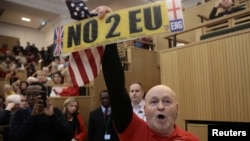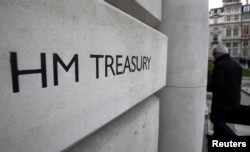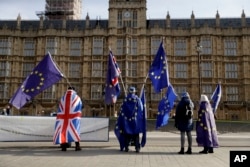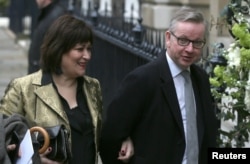“Fiddling the figures,” “dodgy dossiers,” “deep state retaliation.” On both sides of the Atlantic, career public servants are finding themselves in the crosshairs of conservative populists who are questioning their political neutrality as well as the impartiality of their counsel.
With populists and civil servants from Hungary to Britain, as well as the United States, clashing, some alarmed senior bureaucrats are warning that civil services risk emerging from an era of populism compromised and politicized. But populists counter that many civil servants are already politicized and claim they are seeking to undermine the popular will.
In Hungary, Viktor Orban has transformed his country’s civil service law, enabling the appointment of ideological loyalists in what have traditionally been non-partisan bureaucratic jobs.
In Poland, Jarosław Kaczynski’s ruling Law and Justice party have vilified career civil servants, accusing them of elitism and arguing they have “treason in their genes.”
The latest high-profile clash in Europe between emboldened populists and public servants came this week in Britain, where Brexiters have accused the country’s Treasury department of distorting analysis of the likely economic consequences of the country leaving the European Union to cast doubt on how well Britain will do after the break.
Since Britons voted more than a year ago to break from the European Union, Brexiters have thrown a series of allegations at politicians and institutions they perceive as failing to deliver a clean break from the economic bloc, which they say was what was voted for by a majority in the June 2016 referendum.
Pro-Remain lawmakers as well as judges, who ruled parliament should have more say over a withdrawal process, have largely been the main targets of their anger, but the country’s civil service has become a key target in a political tussle over what kind of relationship Britain should have with Europe.
Bureaucrats say there is a mounting trend to lay the blame for failures of the government’s Brexit policy at the civil service’s door.
Retired top civil servant Gus O’Donnell, a former Cabinet secretary, warned in the House of Lords that his former colleagues were coming under increasing attack. “The bickering and blaming of civil servants needs to stop,” he said.
Other former civil servants have been even more vitriolic, accusing leading Brexiters of adopting dangerous tactics similar to those of right-wing German nationalists in the 1930s, who blamed civil servants, among others, for Germany’s defeat in the World War I.
Andrew Turnbull, who led the civil service under prime minister Tony Blair, has warned government officials are becoming the victims of “pre-emptive scapegoating” by Brexiters, who he says are shaping a “stab-in-the-back” myth.
“This is what I think these critics are trying to do,” Turnbull told Britain’s Observer newspaper. “They are losing the argument in the sense they are unable to make their extravagant promises stack up, and so they turn and say, ‘Things would be OK if the civil service weren’t obstructing us’. When you don’t succeed, you find someone to blame for your failure,” he said.
On Thursday, Sarah Vine, a journalist and wife of Michael Gove, another Brexiter and a Cabinet minister, dismissed Turnbull’s claims, arguing in the Daily Mail, “the true nature of our so-called ruling classes, from the civil service to the judiciary, has become apparent. And it is clear that far from being humble shepherds of the people’s wishes, they are, in fact, a bunch of egomaniacal control freaks who would sooner lay waste to democracy than assist a process with which they do not agree.”
Some analysts believe the populists’ questioning of the quality of the expertise offered by bureaucrats resonates with voters. Will Davies, a politics professor at the University of London, told a recent conference at Britain’s Chatham House research organization the roots for public doubts in the West about bureaucrats and experts, especially when it comes to economic forecasting, can be traced back to the 2008 financial crash, which “exposed various drastic failures of regulation, calculation and prediction” and that has led to widespread public doubts about the authority of expertise.




